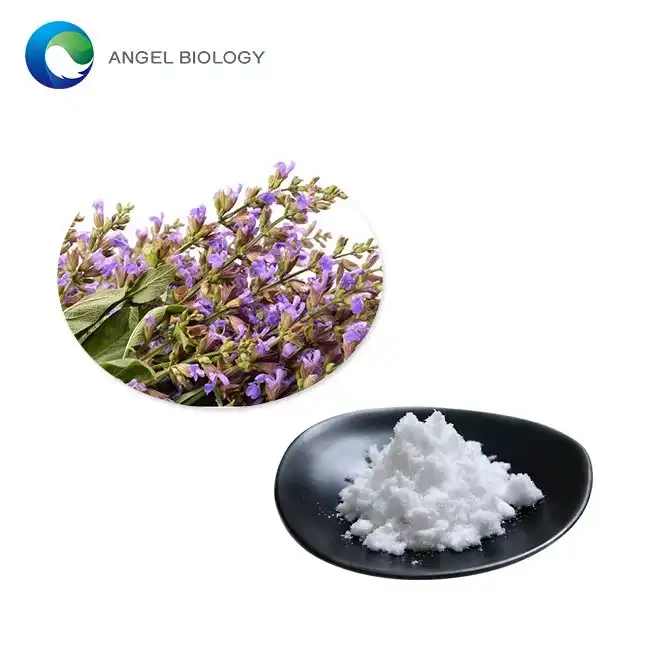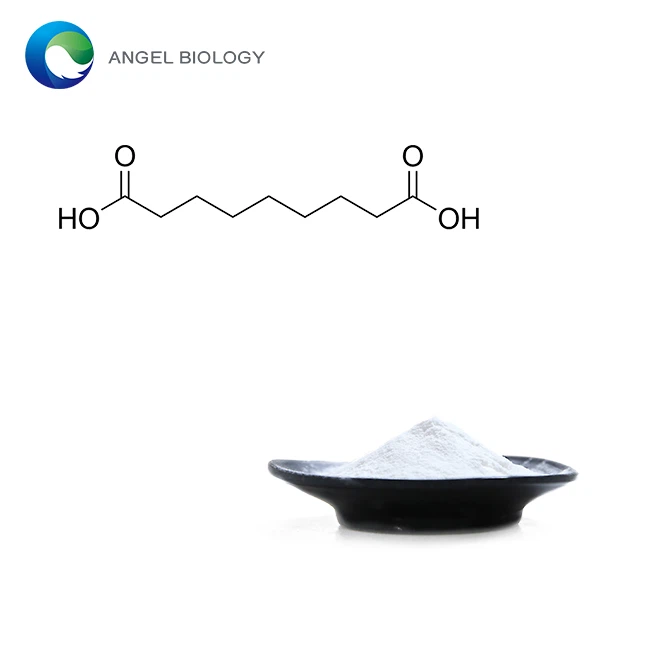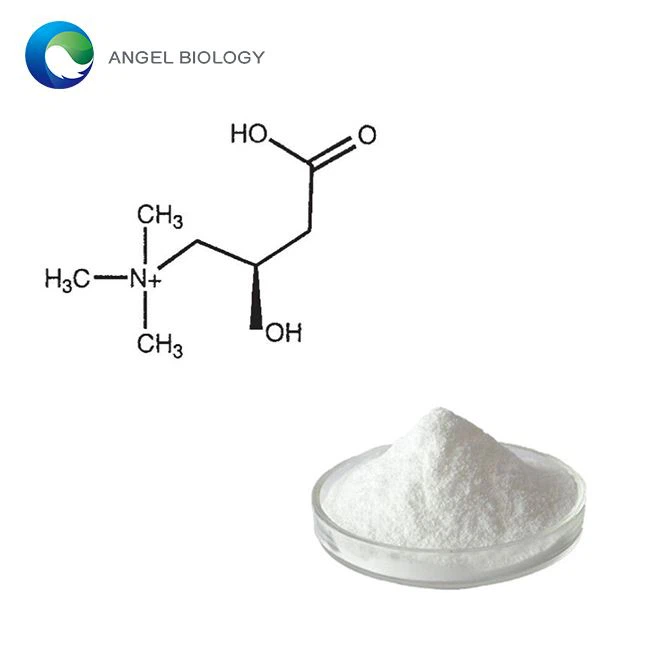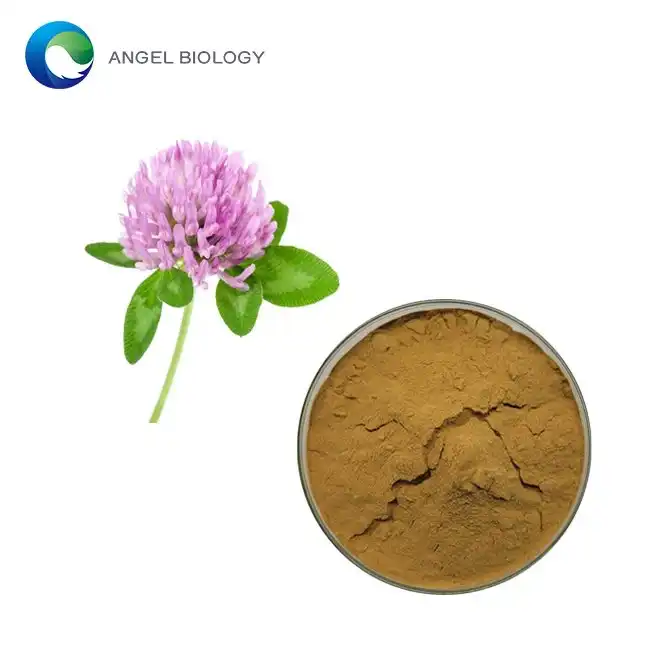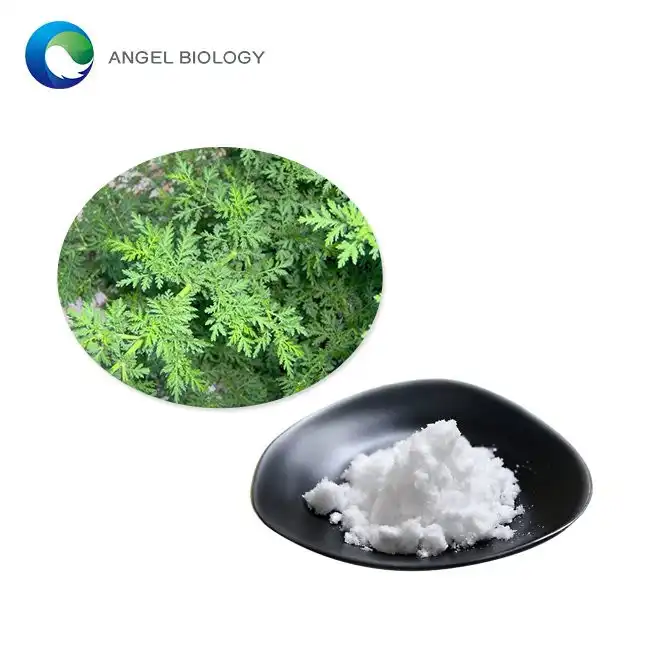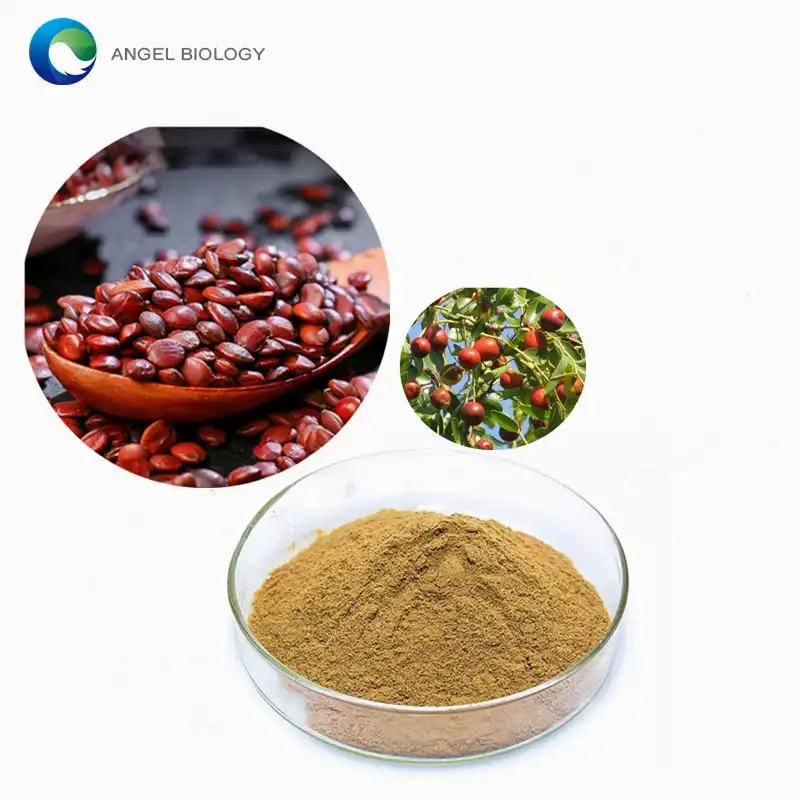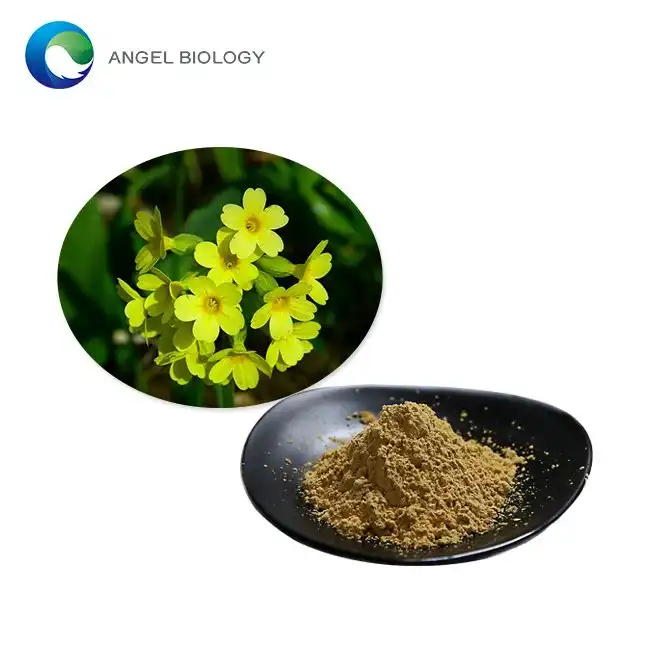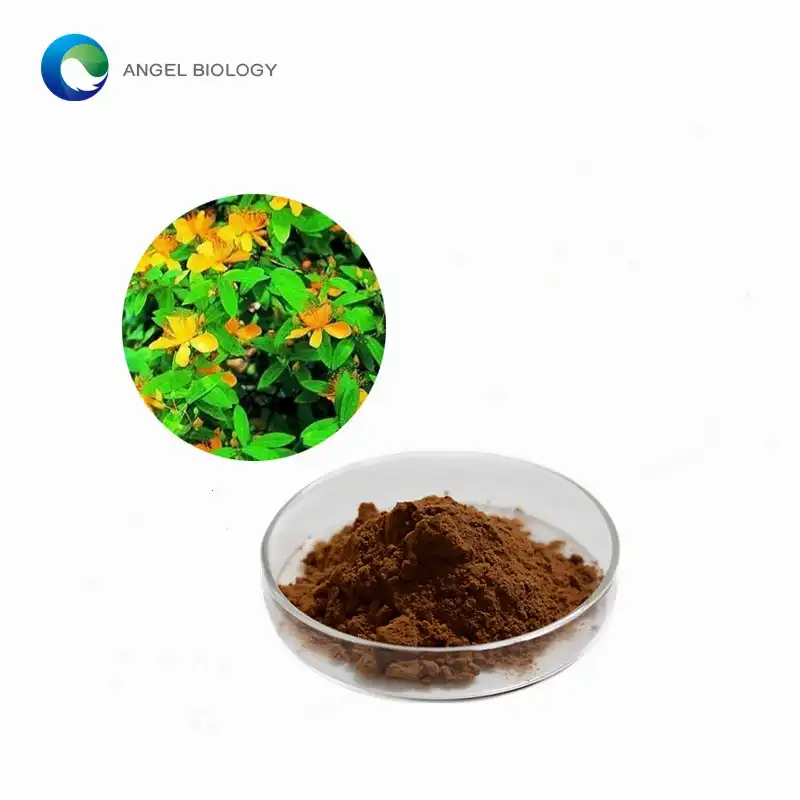How Does Formononetin Act as a Phytoestrogen in the Body?
One of the most notable characteristics of Formononetin is its ability to function as a phytoestrogen in the human body. Phytoestrogens are plant-derived compounds that can mimic or modulate the effects of estrogen, the primary female sex hormone. This property of Formononetin is particularly interesting due to its potential implications for hormonal balance and related health concerns.
Formononetin exhibits a structural similarity to estradiol, the most potent form of estrogen in the human body. This similarity allows Formononetin to bind to estrogen receptors, albeit with a lower affinity compared to endogenous estrogen. By doing so, Formononetin can exert mild estrogenic effects, which may be beneficial in certain circumstances.
The phytoestrogenic activity of Formononetin Powder is particularly relevant in the context of menopause and related symptoms. As women transition through menopause, their natural estrogen levels decline, often leading to a variety of uncomfortable symptoms such as hot flashes, night sweats, and mood swings. By acting as a gentle estrogen mimetic, Formononetin may help alleviate some of these symptoms, providing a natural alternative to hormone replacement therapy.
Moreover, the phytoestrogenic properties of Formononetin extend beyond menopausal symptom relief. Research suggests that this compound may also play a role in maintaining bone density, supporting cardiovascular health, and even potentially reducing the risk of certain hormone-dependent cancers. However, it's crucial to note that the effects of phytoestrogens can be complex and may vary depending on individual factors such as hormone levels, age, and overall health status.
Interestingly, Formononetin demonstrates a unique characteristic known as selective estrogen receptor modulation (SERM). This means that it can act as an estrogen agonist in
The phytoestrogenic activity of Formononetin also extends to its metabolites. In the body, Formononetin can be converted to daidzein, another isoflavone with estrogenic properties. This conversion process adds another layer of complexity to Formononetin's bioactivity and may contribute to its overall health effects.
It's worth noting that while the phytoestrogenic properties of Formononetin are promising, more research is needed to fully understand its long-term effects and optimal dosage. As with any supplement, it's essential to consult with a healthcare professional before incorporating Formononetin Powder into your health regimen, especially if you have a history of hormone-sensitive conditions.
Antioxidant and Anti-Inflammatory Effects of Formononetin
Beyond its phytoestrogenic properties, Formononetin has demonstrated significant antioxidant and anti-inflammatory capabilities, further contributing to its potential health benefits. These properties are crucial in combating oxidative stress and chronic inflammation, two factors that play a pivotal role in the development and progression of various diseases.
The antioxidant activity of Formononetin is primarily attributed to its ability to scavenge free radicals and reactive oxygen species (ROS). Free radicals are unstable molecules that can damage cellular components, including DNA, proteins, and lipids. This damage, known as oxidative stress, is implicated in numerous health issues, ranging from premature aging to chronic diseases like cancer and cardiovascular disorders.
Formononetin Powder has shown remarkable efficacy in neutralizing these harmful molecules. Studies have demonstrated that Formononetin can increase the activity of antioxidant enzymes such as superoxide dismutase (SOD) and catalase, which are crucial for the body's natural defense against oxidative stress. By enhancing the body's antioxidant capacity, Formononetin may help protect cells from oxidative damage and potentially reduce the risk of related health issues.
The anti-inflammatory properties of Formononetin are equally impressive. Chronic inflammation is a common denominator in many diseases, including arthritis, diabetes, and neurodegenerative disorders. Formononetin has been shown to modulate various inflammatory pathways, potentially offering relief from inflammation-related symptoms and reducing the risk of chronic diseases.
One of the key mechanisms through which Formononetin exerts its anti-inflammatory effects is by inhibiting the production of pro-inflammatory cytokines. These signaling molecules play a crucial role in initiating and perpetuating inflammatory responses. By suppressing cytokine production, Formononetin may help mitigate excessive inflammation and its associated tissue damage.
Furthermore, Formononetin has been found to inhibit the activation of nuclear factor-kappa B (NF-κB), a protein complex that plays a central role in regulating the immune response to infection and inflammation. By modulating NF-κB activity, Formononetin may help maintain a balanced inflammatory response, preventing it from becoming chronic and detrimental.
The combination of antioxidant and anti-inflammatory properties makes Formononetin Powder a potentially valuable ally in promoting overall health and wellness. These effects may contribute to its potential in preventing or managing various health conditions, including cardiovascular diseases, neurodegenerative disorders, and certain types of cancer.
It's important to note that while laboratory and animal studies have shown promising results regarding Formononetin's antioxidant and anti-inflammatory properties, more human clinical trials are needed to fully elucidate its effects and optimal usage in humans. As research progresses, we may gain a deeper understanding of how to harness these beneficial properties of Formononetin for therapeutic purposes.
Formononetin's Role in Bone Health and Osteoporosis Prevention
One of the most promising areas of research regarding Formononetin is its potential role in maintaining bone health and preventing osteoporosis. This is particularly significant given the prevalence of osteoporosis, especially among postmenopausal women, and the need for safe and effective interventions to support bone health.
Formononetin's impact on bone health is multifaceted, involving both its phytoestrogenic properties and its direct effects on bone cells. As mentioned earlier, Formononetin can bind to estrogen receptors, which are present in bone tissue. This interaction can help mimic some of the bone-preserving effects of estrogen, which is crucial for maintaining bone density.
Research has shown that Formononetin Powder can influence the activity of both osteoblasts (cells responsible for bone formation) and osteoclasts (cells involved in bone resorption). Specifically, Formononetin has been found to promote osteoblast proliferation and differentiation, potentially enhancing the body's ability to form new bone tissue. At the same time, it may inhibit osteoclast activity, thereby reducing excessive bone breakdown.
This dual action on bone cells makes Formononetin a particularly interesting compound for bone health. By potentially increasing bone formation while simultaneously decreasing bone resorption, Formononetin may help maintain a positive bone balance, which is essential for preventing osteoporosis and maintaining overall bone strength.
Moreover, Formononetin's antioxidant and anti-inflammatory properties may also contribute to its bone-protective effects. Oxidative stress and chronic inflammation are known to negatively impact bone health, contributing to bone loss and increased fracture risk. By combating these harmful processes, Formononetin may provide additional support for maintaining healthy bones.
Animal studies have shown promising results regarding Formononetin's potential in preventing bone loss. For instance, research on ovariectomized rats (a model for postmenopausal osteoporosis) has demonstrated that Formononetin supplementation can help prevent bone loss and improve bone microarchitecture. These findings suggest that Formononetin may be particularly beneficial for postmenopausal women at risk of osteoporosis.
It's worth noting that Formononetin's effects on bone health may extend beyond its direct impact on bone cells and structure. Some studies suggest that this compound may also influence calcium metabolism and absorption, further contributing to its potential bone-protective properties.
influence calcium metabolism and absorption, further contributing to its potential bone-protective properties.
While these findings are encouraging, it's important to emphasize that most of the current evidence comes from in vitro and animal studies. More human clinical trials are needed to fully understand the efficacy and safety of Formononetin Powder for bone health in humans. Additionally, the optimal dosage and long-term effects of Formononetin supplementation for bone health are yet to be determined.
As research in this area continues to evolve, Formononetin presents an exciting prospect for natural bone health support. Its potential to promote bone formation, inhibit bone resorption, and combat oxidative stress and inflammation makes it a compound of significant interest in the field of osteoporosis prevention and treatment.
Conclusion
The bioactive properties of Formononetin Powder offer a wealth of potential health benefits, from its phytoestrogenic effects to its antioxidant and anti-inflammatory capabilities, and its promising role in bone health. As research continues to unfold, we may discover even more ways in which this remarkable compound can contribute to overall health and wellness.
If you're intrigued by the potential of Formononetin and are looking for high-quality, natural ingredients for your health products, look no further than Angelbio. As a leading provider of natural ingredients for the health and wellness industry, we offer premium Formononetin Powder that meets the highest quality standards. Our commitment to innovation and quality ensures that you receive products that align with your commitment to natural origin and global health.
Ready to explore how Formononetin can enhance your product line? Contact us today at angel@angelbiology.com to learn more about our Formononetin Powder and other natural ingredients. Let's work together to create products that truly make a difference in people's lives.
References
1. Zhang, Y., et al. (2018). "Formononetin: A Review of Its Anticancer Potentials and Mechanisms." Frontiers in Pharmacology, 9, 918.
2. Mu, H., et al. (2009). "Formononetin Promotes Angiogenesis Through Estrogen Receptor Alpha and p38 MAPK Activation." Journal of Cellular and Molecular Medicine, 13(8B), 1985-1994.
3. Tyagi, A. M., et al. (2012). "Formononetin Reverses Established Osteopenia in Adult Ovariectomized Rats." Menopause, 19(8), 856-863.
4. Auyeung, K. K., et al. (2016). "Formononetin Induces Apoptosis in Human Colon Cancer HCT116 Cells in Both p53-Dependent and -Independent Pathways." Journal of Cellular Biochemistry, 117(7), 1697-1706.



